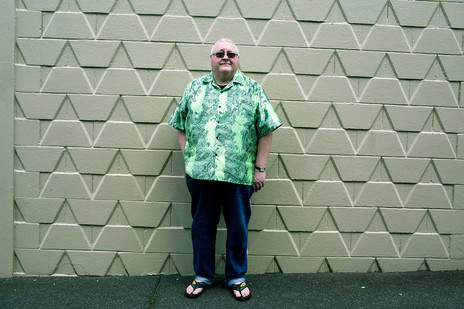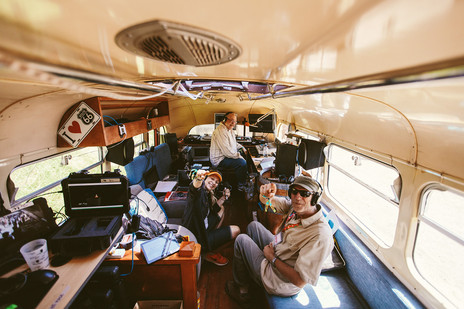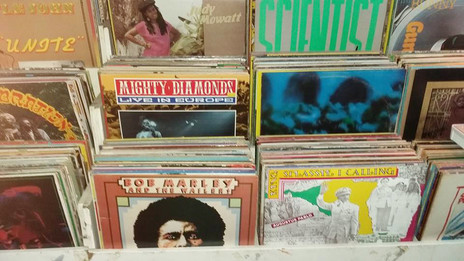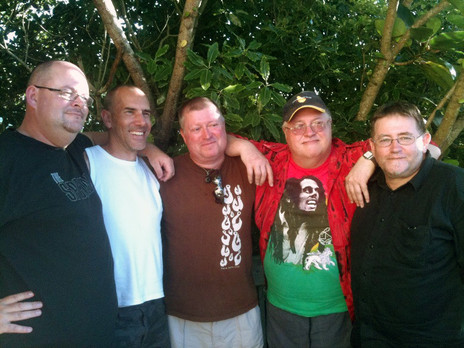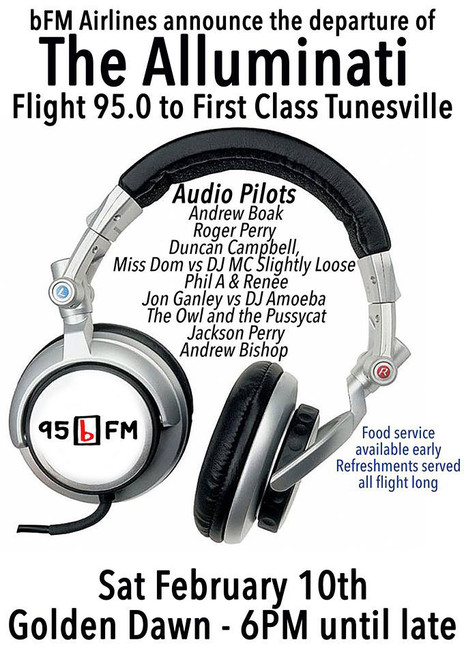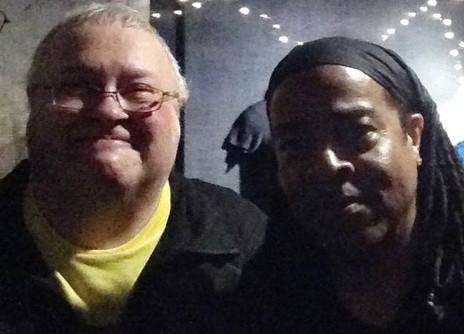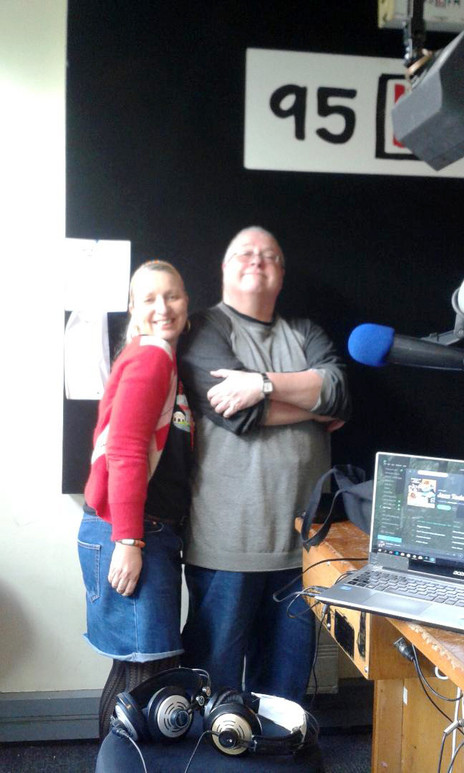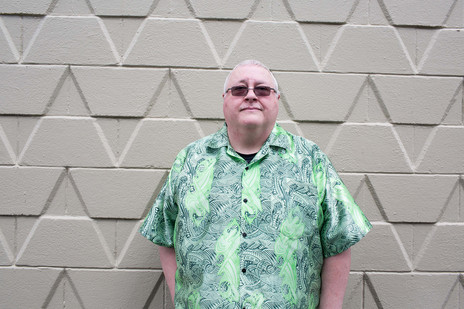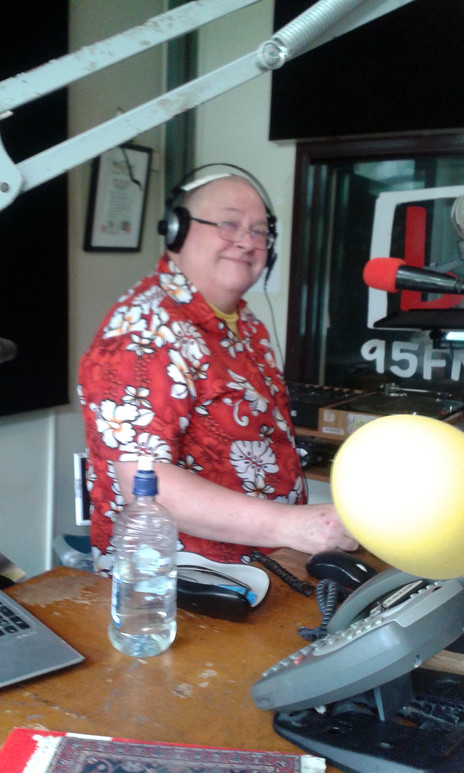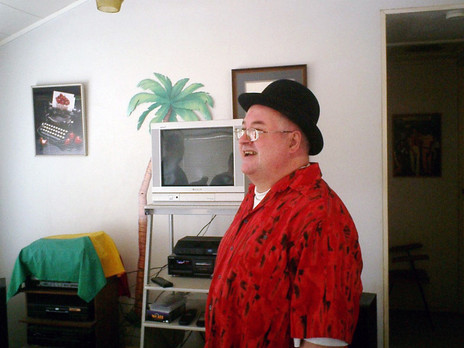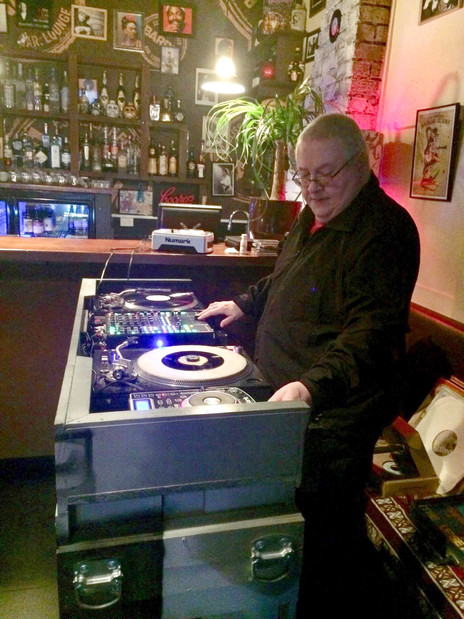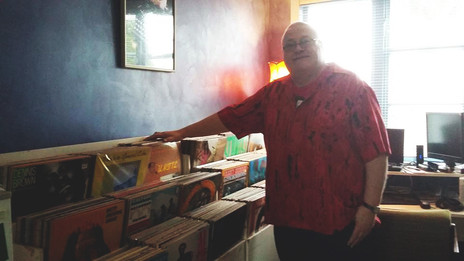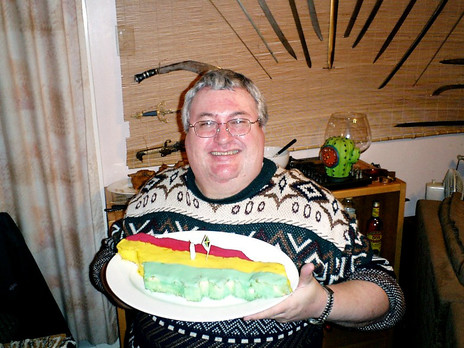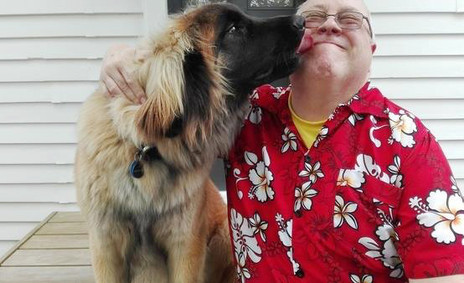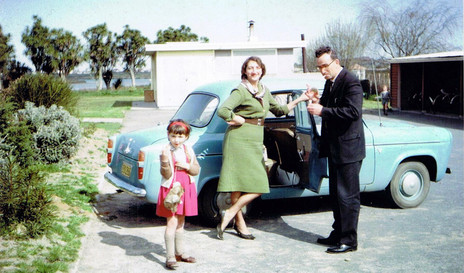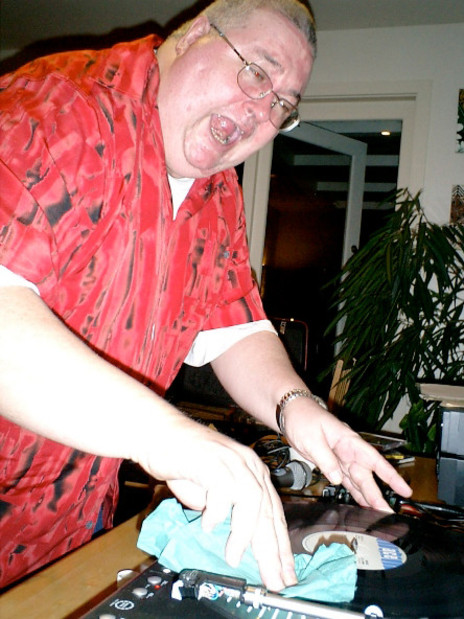Campbell’s Sunday night radio show The Sound System is legendary, running from 1980 to 1991. It was probably the most taped show in the history of New Zealand. Listeners could not buy most of the new and rare reggae Campbell played and many wanted to replay the heavenly reggae vibes in their car or to post tapes to mates out of town. On social media many listeners have mentioned keeping their cassette copies of The Sound System.
In 1974 Campbell moved from the Auckland Star to Radio i, where he worked with similarly music-mad news journalists Ken Williams and Nigel Horrocks.
He was one of the young writers that enjoyed the renaissance in local music that came with the punk era. At Radio i he was a news journalist by day but was ready to review concerts, sub-edit younger writers or do in-depth interviews by night.
He enjoyed the renaissance in local music that came with the punk era.
Campbell was a major asset for Rip It Up magazine to have on board as he was always willing to write, whether the act was obscure or as well-known as Split Enz. He could pick a winner. In a 1983 review he was trying to give an MBE to Dave Dobbyn. Five years earlier, when Th’ Dudes had opened for Peter Frampton, he wrote, “Th’ Dudes shone, and for me, were the highlight of the evening. Their songs are melodic, economical and well-constructed.”
In those days, newspaper journalists were unlikely to show up in time to review the local act but Campbell was there early at Western Springs and affirmatively acknowledged that “Peter Urlich walked out front confidently, announced they would be playing their own material, and kicked the band into action.”
Playing your own material was rare and a writer daring to say the local act was the highlight of the evening was unthinkable. This was the first time that as editor of Rip It Up I challenged one of his reviews as, after praising Th’ Dudes, he put the boot into Citizen Band. Never once did he back down, so I printed his opinion, although I recall binning his review of an album by Wellington group Let’s Planet.
When it came to covering the Sweetwaters Music Festival, it was decided that Rip It Up would review every act. Music journos are not usually the camping type, so in the VIP area without tents, we slept under cars or in the back of vans.
For the 1981 festival, Campbell would not entertain such undignified accommodation and chose to book a motor home instead, with alcohol hidden in every nook and cranny of the vehicle.
His Jafa indulgence was contrary to us Auckland folk not realising that on a farm next to the Waikato River a hot summer day might be followed by a cold summer evening. In shirts and shorts, we all froze through Mi-Sex, Roxy Music and other acts.
That year, Roxy Music was the highlight for me and I challenged Campbell on the dire review he turned in, and suggested that because he was inappropriately attired, he gave Roxy Music a drubbing. I used a line from his review to question his objectivity: “Dropping my torch down the bog didn’t improve my temper, either.”
“Dropping my torch down the bog didn’t improve my temper, either.”
For Campbell, his professional integrity was being questioned and my insinuating that his response was in some sense subject to his having cold knees, was preposterous! He would not back down and the review was printed as he wrote it.
Two years later, in 1983, that the shit hit the fan. Too Jafa to camp, I chose to drive back each night to Auckland in a Bedford van, loaded with other like-minded music-biz folks. But Campbell hired another campervan and from memory, upon arrival, he got it stuck in the mud, in the VIP backstage camping area. Drinking and writing was the issue at this festival.
Campbell knew I was president of the Screaming Meemees Fan Club (not formally) and I flatted with their manager Simon Grigg. Campbell wrote that “After the impact of a couple of bright singles has worn off, the Meemees can start to sound monotonous.” Nothing wrong with the review, and I printed it. The problem was the letter from Paul Rose of Propeller Records that appeared in the next issue.
I now see (more clearly) why the line “C’mon DC, own up! Were you blind or just blind drunk?” was a problem. I was expecting a phone call from Campbell, but he turned up in person and did a bit of shouting at me. What I had printed was clearly libellous. I had to agree on that point and concede that I had been grossly unprofessional in not having given him the write of reply.
Fortunately we had bonded that same month over Toot & The Maytals at the festival and at Mainstreet and we even drove to see him in Whangarei. Toots Hibbert was late going on stage due to a heavy cold or flu and we observed him laying horizontal backstage. Once Toots took the stage he was fabulous. I recall Campbell being one the very few dancers in front of the stage: maybe the Northlanders did not have their reggae groove on by 1983, or maybe they only spelt reggae one way, M-A-R-L-E-Y?
A tune has run through my head writing this story, “I won’t back down.” Campbell was a pro, so he could go to a 1980 Tom Petty concert, write a brilliant review in 50 minutes and – in pre-fax days – leave it in his letterbox for me to pick up later that night to make the deadline. His Petty review was notable for its lack of full-stops. Comma after comma after comma: he had a flow on. As a less experienced writer I asked for advice on getting the flow on and he succinctly replied, “Try Port.”
“It was a relief when the power failed.”
In 1983 Campbell wrote some acerbic Sweetwaters Festival reviews. The fact that no musicians took offence to his Mantra review proves that the nicest guys in rock play heavy metal: “They’re billed as the country’s only Māori heavy metal band. Their music is a great, gross, sloppy ponderous thing. Two giant clammy hands trying to throttle you into submission. As pleasant as a British Army greatcoat in the Sahara and about as useful. Listening to it even without the howling gales would have been an ordeal. It was a relief when the power failed.”
Bob Marley made a reggae fanatic out of Campbell, although he had dabbled in Caribbean music as a teen, buying Desmond Dekker’s ‘Israelites’. “After hearing Natty Dread” [1974], he wrote, “I took a new path, started a radio show, spent a small fortune on records by artists hardly anyone here had ever heard of, and along the way made some lasting friendships.”
When Bob Marley and the Wailers played Western Springs on 16 April 1979 Campbell wrote in Rip It Up: “Bob Marley, seen! Stone delight on an Easter Monday, as only Jah Music can provide. Ras Bob did it, living up to all expectations. Neither mud nor petrol cuts could detract from such a gathering. The Wailers raised the Autumn temperature a dozen degrees.”
The question has been asked why Campbell and I did not wait a significant amount of time for an interview with Bob Marley: we were not told we would not get an interview. I took some soccer photos and went home, as Campbell had already gone. I think Campbell reflected on the day inaccurately when interviewed on Radio New Zealand in 2015. He had started work at Radio i that morning at 5am, so he must have been ready for a snooze by that afternoon.
Marley was so popular in New Zealand at the time that I assumed he would tour New Zealand regularly in the following years. If I had had any perception he would only play Auckland once, I think I would have asked for his autograph. It was no big thing that we got no interview, as we could get an interview on the next tour or when the next album was released. We did not know he was unwell.
He relished seeing Maori and Polynesian musicians incorporate reggae in their work.
For reggae fans, the bad news in May 1981 was Bob Marley’s death, but the good news was that reggae flowed into local music with the release of What’s Be Happen by Herbs, two months later. Campbell wrote: “I’ve long been hoping that the Māori and Polynesian culture would look to reggae to provide a contemporary means of expression. This record marks a major step forward for New Zealand music. While they’ve borrowed the reggae idiom, they’ve also drawn on influences from their backgrounds. Witness the harmonies on ‘Reggae’s Doing Fine’, an acoustic tribute to Bob Marley. The sound is pure Polynesia, showing that Herbs are far from copybook stylists.”
Toni Fonoti left Herbs in 1983 to form New Zealand’s first Rasta reggae group, 12 Tribes of Israel, and Campbell followed the group’s progress. Fonoti appreciated his support: “I met Duncan after Herbs. We were part of the Jamaican organisation called The 12 Tribes of Israel of which Bob Marley was a member and Duncan knew he gravitated towards the group. Duncan became a super fan because we were connected with the Jamaican music scene. He attended most of our reggae dances from 1983-90 as one of the very few brave enough to move in our inner circle unintimidated because he was authentic with a genuine love and appreciation for reggae. I will always remember his unique voice, his love, his genius, his work ethic. When I would visit Jamaica I would sometimes bring Duncan some rare 45s or signed copies from original artists. I loved both his shows as a fan of reggae and jazz.”
Dom Nola, a bFM programme director in the mid-80s, recalls the Sunday night show. “He was never in the studio by himself. Duncan was holding court, interviewing visitors. He was very close to the 12 Tribes of Israel and immersed in the culture of reggae. People dropped by, this guy with dreadlocks, followed by this guy with dreadlocks, dope was smoked …”
In a 1984 bFM magazine (when the station was on 91.8mhz) Campbell was campaigning for the local release of reggae albums. “You’d think the reggae selection in your local record store would be considerable. It’s not, because the record companies do not think it’s ‘commercial’ enough. If you hear something you like, go to your record shop and ask for it. If they haven’t got it (which they almost certainly won’t), ask why. This programme is not cheap to run, but then reggae fans are used to paying through the nose. Support alternative music and help bring the changes. Break down the walls in a Babylon …”
Campbell was not just a reggae guy, he liked the way punk shook up the music scene in the late 70s. He travelled to London in 1981 and knocked on record company doors, scoring exclusive interviews with two grumpy young men: John Lydon in his PiL (Public Image Ltd) days and Paul Weller before The Jam split.
“The only word to describe Reggae Sunsplash is intoxicating.”
In August 1986 Campbell headed to Montego Bay, Jamaica to the enjoy the Reggae Sunsplash festival. It featured 44 acts over four nights; the concerts started at 9pm, with the headliners on stage just prior to dawn. He wrote: “The only word to describe Reggae Sunsplash is intoxicating, and it’s more than just the strength of the local brew.”
Campbell was promoted to news editor at Radio i in 1986. During his time at the station journalistic challenges he faced included the 1981 Springbok tour and the 1985 Rainbow Warrior bombing. After Radio i Campbell worked at TVNZ’s, Teletext, ZM’s news desk, sub-edited at NetGuide magazine, worked for software companies and then established Campbell Content to write for websites.
Public awareness of Campbell as an authority on reggae caused his knowledge of other genres to be overlooked. In 2016, Dom Nola set out to end his premature retirement from the airwaves, and invited him to join the team who co-hosted the Sunday afternoon jazz show on 95bFM. He returned to the airwaves in 2016 wearing his jazz hat.
Although music writing and reggae broadcasting is Campbell’s arts legacy, he also contributed as a news journalists who did the daily grind of keeping the public informed so our democracy is functional.
Fellow music journalist Russell Brown loved Campbell’s radio jams but also remembers him as a pro: “He wrote with the passion of a lifelong music fan and the precision of a news journalist.I know a number of news journalists who got their start with Duncan, and they all recall him as their kind, patient mentor in the trade. He was also a mate, and I can confirm that at the last party he came around to, he was as good as ever on the turntables.”
Duncan Campbell died in Auckland hospital after a brief illness on Tuesday, 3 July 2018. He was 64.
--
Read a selection of Duncan Campbell's reviews of New Zealand music for Rip It Up.
